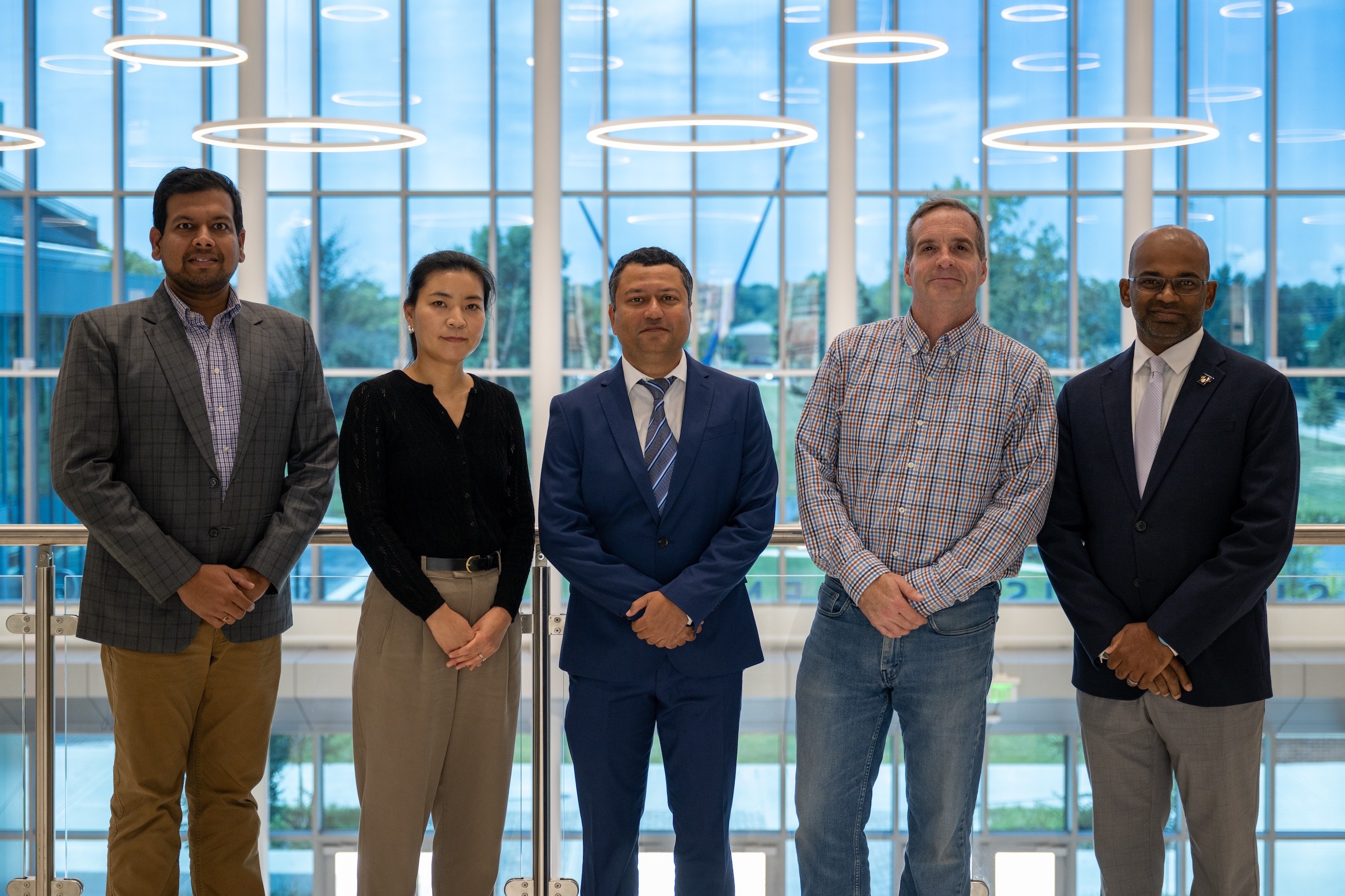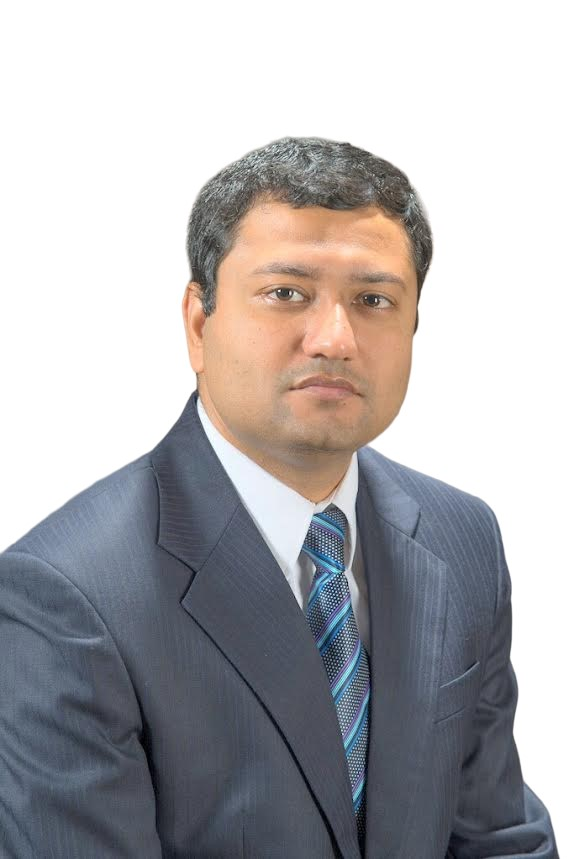Tennessee Tech faculty earn $3 million grant to train future leaders on convergence of energy, AI and cybersecurity

From left: Maanak Gupta, Eunsung Park, Indranil Bhattacharya, Doug Talbert and Kumar
Yelamarthi are pictured in the university's new Ashraf Islam Engineering Building.
Together, the faculty members will manage the university's new $3 million National
Science Foundation grant.
Tennessee Tech University is building on its reputation as the state’s premier energy,
cybersecurity and AI powerhouse thanks to a new $3 million research grant from the
National Science Foundation.
The prestigious five-year grant will be led by Tech’s Department of Electrical and
Computer Engineering with support from Computer Science and Mechanical Engineering
and will equip Tech to train 24 master’s and doctoral students in research on the
convergence of energy, AI and cybersecurity disciplines.
The funding will provide the students with covered tuition and a generous annual stipend
to perform cutting-edge research with implications for stopping cyber-attacks, improving
malware detection, securing the nation’s energy supply and better understanding its
energy infrastructure.
“When you join these concepts – energy, cybersecurity and AI – and create a research
venture where students and faculty can come together and perform interdisciplinary
research – that’s a powerful thing that is great for our state and nation and is something
that is truly unique to us here at Tech,” explained Indranil Bhattacharya, professor
and interim chair of Tech’s Department of Electrical and Computer Engineering and
principal investigator for the grant project.
“It’s one of the most competitive grants that NSF provides. Top tier research institutions
are competing for this, so we’re very pleased that Tech was chosen,” he added.
Bhattacharya emphasizes that, while it is not uncommon to find experts in one area
of cybersecurity, energy or AI, there is a clear workforce need for those who can
unite these skills to bring a holistic perspective to real-world challenges impacting
our critical infrastructure. This grant, he says, will allow Tech to cultivate students
prepared to do exactly that.
Tech faculty joining Bhattacharya as co-investigators on the grant include Maanak
Gupta, associate professor of computer science, Doug Talbert, professor of computer
science, Kumar Yelamarthi, associate dean of academic affairs and professor of electrical
and computer engineering, and Eunsung Park, assistant professor of educational technology.
Bhattacharya says Tech student researchers supported by the grant will benefit from
the cross-disciplinary collaboration.
“Bringing researchers from different departments to work together in this kind of
convergence project is something very unique and special,” said Bhattacharya. “Collaboration
is something that has been very helpful because it helps us to be more successful.
It helps us to train our students better and it helps elevate the university.”
Indranil Bhattacharya, professor and interim chair of Tech’s Department of Electrical
and Computer Engineering and principal investigator for the grant project
The grant comes as Tech has continued to make significant research gains, topping
$46 million in externally funded research for fiscal year 2024 – the highest total
ever recorded in the university’s 109-year history.
“We are enormously proud of Drs. Bhattacharya, Gupta, Talbert, Yelamarthi and Park
for bringing home this highly competitive grant right here to Tennessee Tech,” said
John Liu, vice president for research at Tech. “As we look to build on Tech’s record-setting
research haul from the last fiscal year, this is another building block toward that
goal. Most importantly, it will benefit our students by providing opportunities for
experiential learning and hands-on training in these sought-after disciplines.”

